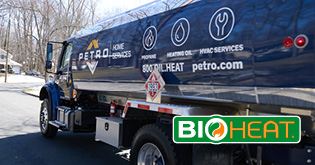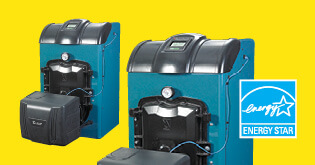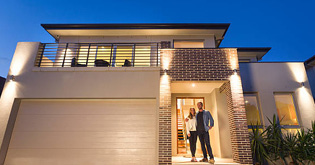- My Account:
- Sign In
- Register
- Make Payment

Gas grills: Propane grill safety tips for outdoor grilling.

Are you ready to fire up your grill for the summer? While almost everyone loves a barbecue, it's important to remember that you're literally playing with fire. According to the National Fire Protection Association, nearly 16,000 people are hospitalized each year because of injuries involving grills. Half of the injuries were thermal burns. The peak months for these injuries were July, with 17% of the injuries, May (14%), June (14%), and August (13%).
The oil and propane service experts at Petro Home Services have written up our top tips for staying safe while grilling on a propane grill this summer.
1. Only use propane grills outside
It is recommended that you keep your propane grill tank outside near your grill. Always keep your grill and propane cylinders outside in a well-ventilated area. Never bring them indoors or in an enclosed space such as your garage. When you're using your grill, the dangers such as burning embers or gas flare-ups as you struggle to light your grill are obvious. Even when it's off, you may still risk carbon monoxide from a leaky gas connection or a slow-burning fire from leftover embers that never cooled.
2. Place your propane grill away from outside structures
For similar reasons, you should place your propane grill away from outside structures. Wood decks, siding, eaves, railings, trees, and even mulch are all potential fuel for a fire. All it could take to cause serious damage to your home is one stray spark, so keep your grill at least ten feet away from any structures and keep a close eye when gas grilling on your wood deck.
3. Keep your propane gas grill clean and maintained
Clean your gas grill after every use to avoid fat and grease buildup. Don't think that the fire makes a grill self-cleaning. Fat and grease provide additional fuel for a fire that could potentially float away or cause unexpected flare-ups. In addition, watch for rust, and check the regulator, hoses, burner parts, air shutter, and valve carefully before each use. Gas leaks could send flames shooting in an unexpected direction and cause injuries or property damage.

4. Be careful not to overfill your propane cylinder
Do not force too much propane into an LP cylinder. An overfilled cylinder can at best make it difficult to regulate gas flow and could even lead to an explosion. By law, a 20 pound cylinder should be filled only to 80% of capacity. This leaves some room for the liquid to expand as temperatures change — both from the heat of the grill and from summer heat waves.
5. Check for propane gas leaks
Always check for gas leaks every time you disconnect and reconnect the regulator to the LP cylinder. A leak in the wrong place could ignite your entire propane tank when you try to light your grill. Visually inspect the hose for abrasion, wear, and leaks before each use. A soap and water solution may be used to help you spot leaks that are too small to spot with a visual inspection. Never use a flame to check for gas leaks as this could create the danger you're trying to prevent. If you find a leak, always fix it before you use your grill again — never assume it's too small to worry about.
6. If the burner doesn't ignite, wait to relight
If a propane gas grill burner doesn’t ignite, don't keep trying to light it. A small gas flare-up might appear funny if you're watching someone struggle to light a grill, but it could easily lead to serious injuries. Turn off the gas, keep the grill lid open, and wait at least five minutes for the gas to dissipate. Use the same process if the burner goes out in the middle of using it.
7. Never leave a propane grill unattended
Never leave a lit grill unattended. Even if you have it in a safe place, a sudden wind could blow food or embers away from the grill and start a fire. There's also the risk of children or pets knocking the grill over or burning themselves as they play too close to it or try to snatch a hot dog. When you're done cooking, remember the grill will be hot for at least an hour. Continue to safeguard it until you clean it, and don't forget to let it cool before you try to touch or move it.
Have more questions?
Petro Home Services is your total propane gas services provider for grills, indoor cooking, and all of your heating needs. We can also help with patio and hearth services. Learn more about how propane can power your outdoor living and outdoor grilling from the propane experts at Petro.
Contact Petro Home Services to learn more about how to stay safe, to schedule a safety inspection, or to refill your propane tank.
Sales 888.735.5651 and Service 800.645.4328
Petro Home Services is proud to not only serve communities in DC, CT, MA, MD, NJ, NY, PA, and RI but we also proudly acknowledge the skills and experience of our expert team behind all resources. With insights on topics ranging from heating oil facts to common air conditioning questions, you can rely on Petro Home Services for facts and information to help you understand more about your heating, cooling and home comfort needs. This article and all articles on the Petro Home Services website have been approved by our team of home service experts.






